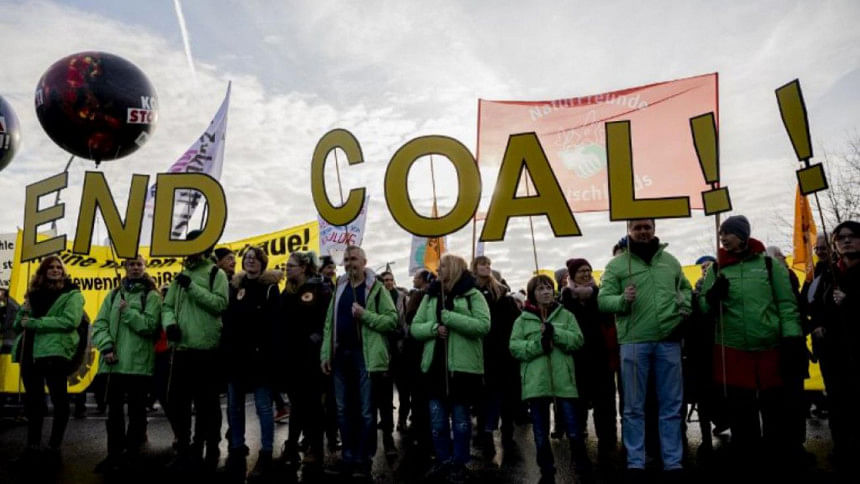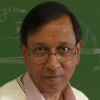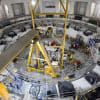COP24: All noise, no signals

Climate change has become a political football in the last 20 years. The "un"-stable American genius once mocked climate change as a Chinese hoax. Now he believes "something's changing," but it is "not man-made." Other heads of state and government talk and act as if climate change will follow whatever is agreed upon by them at various conferences. However, they do not realise that the Earth's climate system is highly complex, and complex systems do not respond to whims.
Since 1995, when the first Conference of Parties (COP) took place in Berlin, world leaders or their representatives met 24 times to address the burning issue of global climate change. At these conferences, they debated about steps that should be taken to reduce carbon dioxide emissions, ignoring other greenhouse gases, some of which are more potent than carbon dioxide. Some of them argued that atmospheric data is incomplete and computer models used by climate scientists are only as reliable as the data fed into them. Others contended that we are trying to measure small changes in a large, complex system and extrapolating those changes into the future is always tricky. The conferences usually ended without any unified strategies to mitigate the dangerous impacts of climate change. In the meantime, our planet is heating up, causing extreme weather-related events that would create, in a very short order, a new planet, still recognisable, but violently out of balance.
The recently concluded COP24 held at Katowice, the coal capital of Poland, was attended by thousands of negotiators representing different countries as well as scientists, students, environmental activists, business groups, non-governmental organisations and journalists. Conspicuously absent were heads of state of some of the countries, most notably the United States, the United Kingdom, Germany, China and India, which emit carbon dioxide in copious amounts. Many activists from developing nations hardest hit by the impacts of climate change were denied visas to attend the conference. Some attendees deemed undesirable by the Polish authorities were either deported or forcibly kept away from the conference site.
As expected, disagreements at the conference weren't really about climate change and global warming. Rather, they were about protecting the national interests of the industrialised countries. To that end, they interpreted scientific results in a way that would bolster, instead of undermine, the support of their political base. Others, including delegates from Bangladesh and small island nations that are least responsible for causing global warming but most vulnerable to its devastating effects, urged the participating nations to adopt a collective action plan to keep the overall temperature rise below two degrees Celsius before the end of this century.
After two weeks of acrimonious debate, it was déjà vu—failure to produce a substantive framework for policy which would offer coherence and consistency as to how the global community should cope with the long-term challenges of climate change. The only noteworthy piece of document that COP24 produced is a Rulebook for putting the 2015 Paris Climate Accord into practice. Suffice it to say, the guidelines outlined in the Rulebook could be portrayed as stopgap measures, for they only treat the symptoms and neglect the underlying root causes of climate change. Therefore, they won't be enough to stop global warming from reaching critical levels.
There are other takeaways from the conference, too. For the umpteenth time we were reminded—this time by the UN Secretary General—that "climate change is the defining issue of our time, and we are at a defining moment." His statement was rephrased by Poland's President who said that "climate change constitutes one of the gravest threats of our time." British environmentalist Sir David Attenborough was one of the few moral voices who mentioned that besides human activity, human inaction is also responsible for climate change. He warned that our inaction would lead to "the collapse of our civilisations and the extinction of much of the natural world."
Kuwait, Russia, Saudi Arabia and the United States "noted", but did not "welcome", the scientific evidences related to climate change. Supported by the host country, where almost 85 percent of electricity is produced from coal, they expressed reluctance to phase out the use of fossil fuels.
The only heartening takeaway from COP24 was the participation of the new generation including school-going children. In particular, Greta Thunberg, a 15-year-old Swedish girl and one of the speakers, castigated the world leaders accusing them of abdicating their responsibility to address adequately the problems arising from climate change. She did not mince words in pointing out that "our biosphere is being sacrificed so that rich people in countries like mine can live in luxury."
Greta's speech should motivate us to set aside zero-sum game thinking, and think more about how to work together to achieve a greener world. Specifically, we have to fully transition to renewable energy, draw down carbon dioxide, relocate the displaced millions, farm and grow more sustainably, and rejuvenate Earth's ecosystems. Most importantly, we have to build a society that seeks balance between human and ecological needs, thereby ensuring that we, our future generations, and other species can survive and live well. Failure to do so would result in a disaster of epic proportions.
Achieving the above-mentioned goals would require cooperation between nations on a much grander scale than envisioned at COP24. The Earth Summit held in Rio de Janeiro in June, 1992 is a good example, although not an ideal one. Nevertheless, the summit produced several agreements on climate change, deforestation, species protection and sustainable development. Participants also published a massive document called Agenda 21, which outlines thousands of ways to solve many of the world's environmental problems caused by climate change.
Finally, in physics, there is a phenomenon known as "resonance" that is produced by sympathetic vibration. For example, when we turn the knob of a radio to tune to a station, we are changing the frequency of the electrical circuit of the receiver to make it equal to the transmission frequency of the radio station. When the two frequencies match, there is resonance and we can hear clearly broadcasts from the station. If the frequencies do not match, we hear only noise. At COP24, there were nearly 200 participating nations operating at discordant frequencies. Hence, there was no resonance, only noise without any discernible signal.
Quamrul Haider is a professor of physics at Fordham University, New York.










Comments